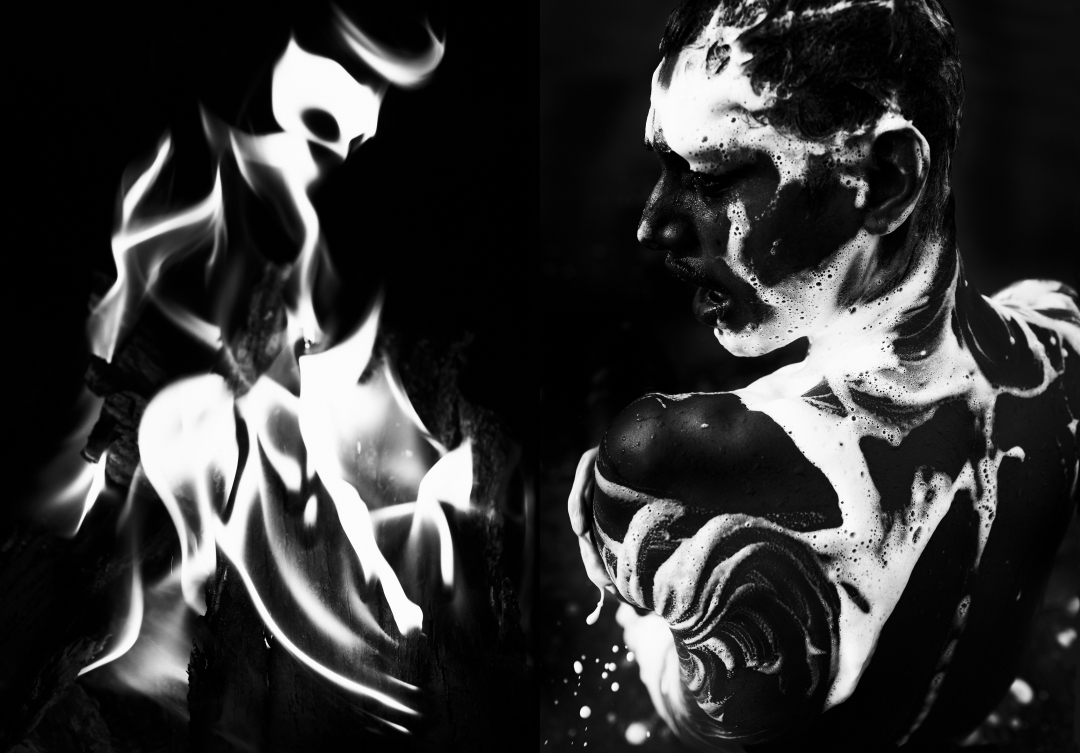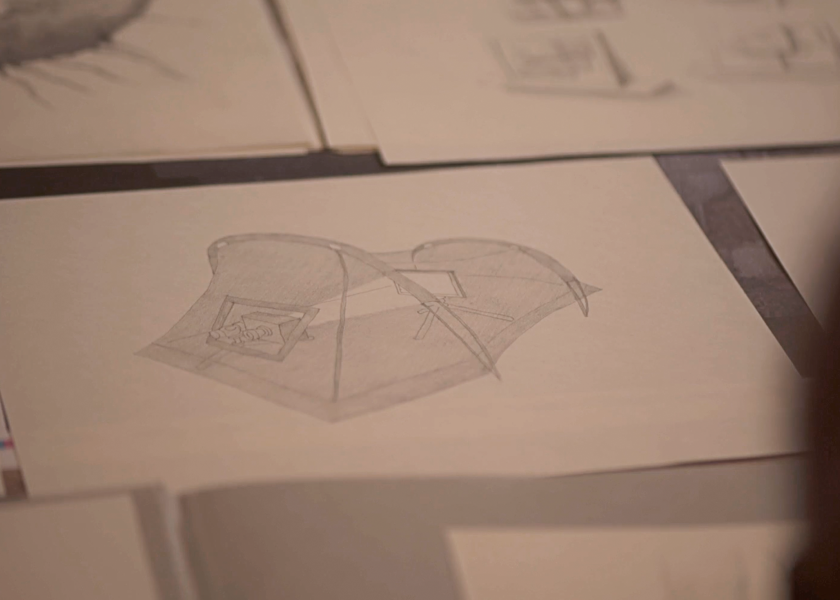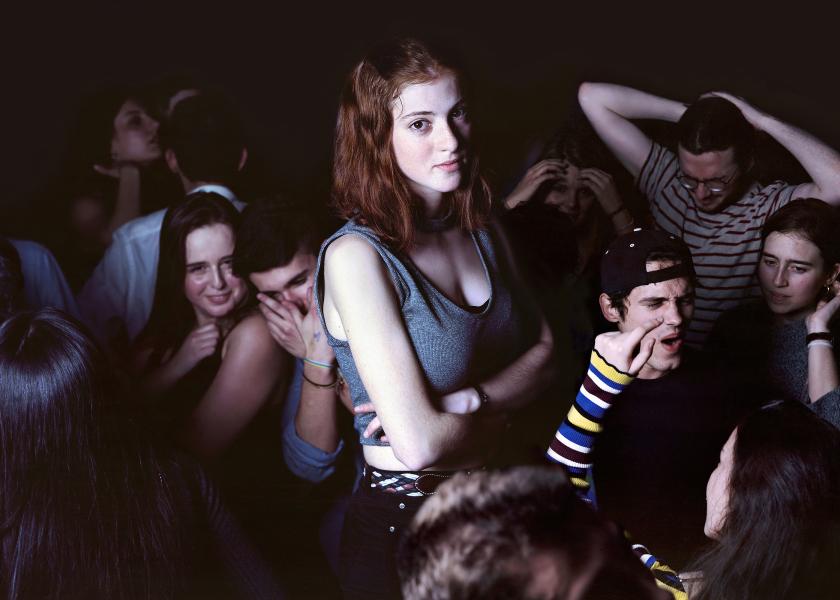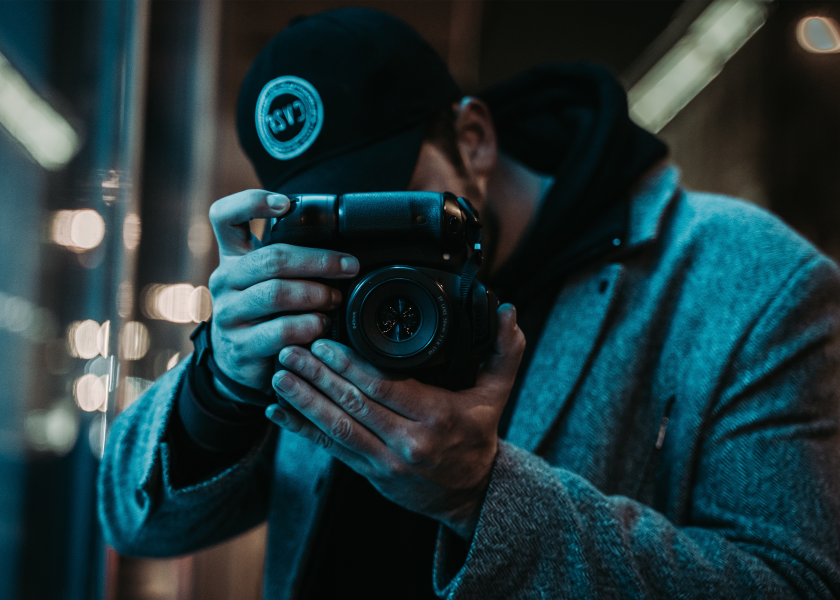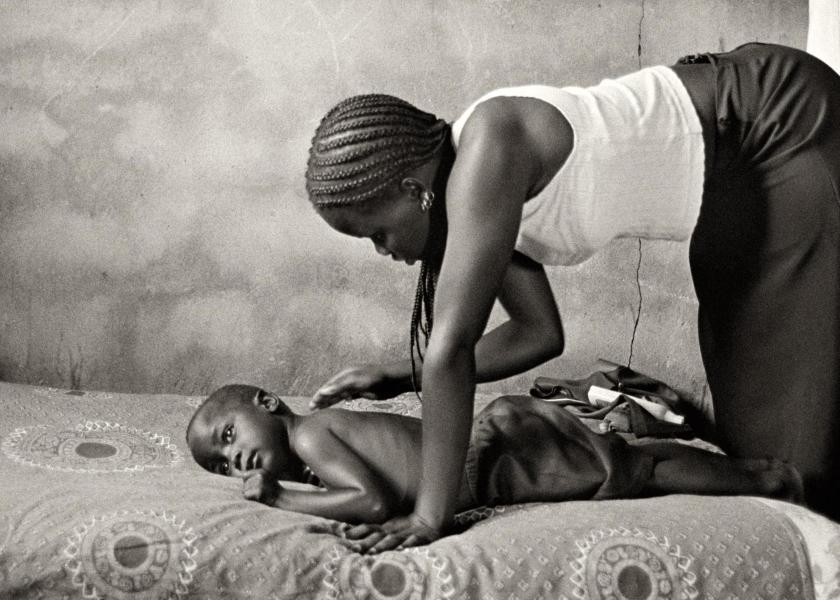David Jiménez
“Reality Is Nothing But A Made-Up Construction”

Madrid-born photographer David Jiménez looks like a calm man. However, his mind is a tangle of high-tension lines carrying poetic images, questioned certainties and a great suspicion—that reality, what we believe we see, all that the objective captures, is nothing but a great made-up construction. A pioneer of the photobook in Spain, PHotoESPAÑA 2019 has devoted a retrospective exhibition to his work.
Born a Sevillian (Alcalá de Guadaira, 1970), David Jiménez feels very much from Madrid. Growing up in a family that moved around a lot, he spent his childhood in the United States. When they settled in Madrid in 1983, he was a 13-year-old boy with an itch for photography. He registered at the faculty of Fine Arts at the Complutense University, where he started out drawing, until he realised pencils and brushes weren’t his thing.
“By the late 80s, I was already doing photography seriously. In 1990, I took part in a workshop by Koldo Chamorro, my mentor, now gone. That was a turning point for me. I finished my Fine Arts degree, but that experience showed me I was meant to be a photographer rather than a painter.”
Almost a decade later, David Jiménez won the Best Upcoming Photographer Award at PHotoEspaña. “I had been working for ten years at that point, which according to Koldo was the minimum required to learn the craft properly. Over the years, I’ve come to realise he was right. Photography appears to be something easy and immediate, and in a way it is. But in order to accomplish a serious and profound body of work, ten years is just the beginning.”
Naturally, the recognition meant a strong boost. “Winning an award makes you feel brilliant, but the feeling fades rather quickly and you have to keep working. Awards don’t change your life, but, by accumulation, they do serve to endorse your career.”
The accolade coincided in time with the publication of Infinito (Photovision, 2000), his first and highly-praised photobook, still a reference to many for establishing new guidelines of what makes a good photography book. “It definitely was a happy time for me.”
Universes exhibited
Jimenez’s first retrospective, Universos, opened recently as part of PHotoESPAÑA 2019 at the Canal de Isabel II Exhibition Hall. The show highlights the most significant phases in his career—the remarkable use of black and white, the incredible evolution of his talent, his recent foray into colour photography. “The exhibit wasn’t meant to be an comprehensive display of my work. We created something freer, with emphasis on the present and doors open to the future.”
David Jiménez’s work revolves around one main reflection and some flashes of obsession. “My creative concerns have never changed. They all come from how I see the world, from my philosophy. I have always had the feeling the world I experience is some kind of great fantasy in which strange, illogical things happen. The way I see it, real life, where everything seems balanced and stable, is also a great illusion. All we think we know is nothing but a projection in our minds, a vision conditioned by multiple factors, a mental construction. Life gives us the reasons we want to obtain. If you’re afraid to leave home, you will find plenty of arguments not to do so. If you want to conquer the world, you will find the strength you need. My main concern is to be able to reflect that reality is a made-up construction.”
This big lie has always fascinated Jiménez. “My work is some sort of poetic translation of this reflection about the interconnection of each and every phenomenon in the world, the relationship between the echoes and the resonances I experience.”
He is also a fan of solid foundations: “Training the eye is possible and very necessary, because it expands our vision of the world and of what we are. It makes us more complex and provides us with wonderful mental tools.”
“I tend to work on long-term projects; some of them I’ve been working on for more than fifteen years”
David Jiménez doesn’t like to rush things. In fact, he is aware that, for someone his age and experience, he hasn’t exhibited that much. “I believe being a bit patient helps you develop your ideas more intensely. I tend to work on long-term projects; some of them I’ve been working on for more than fifteen years. For example, I started Vértigo, my second photobook, at the same time as Infinito, but it didn’t see the light until 2014.”
Admittedly, his projects take long to mature: “I’m not a fan of rushing things. Sometimes I say to myself: ‘You’re pushing 50, you could have done more’. But this is how I work, this is my pace and I’m not complaining.”
One cannot help but wonder if this slow-paced art is compatible with the more prosaic reality of paying the bills. Is it possible to live off photography? “Yes, it is; I do live off it. The thing is, and this is quite common among my peers, we make money from photography in different ways. I sell some of my work, but I’m not obsessed over it. Right now, I don’t even have a gallery, and it’s ok. I don’t really care much about how the market works; I see it as parallel reality that decides you’re good only if you sell a lot, which isn’t always true. Let’s just say the market is a bit too happy to accept this type of excesses. Yes, I sell my work, but I also teach, organise workshops and do some commercial jobs that challenge me in some way and give me freedom. I’m not one for scholarships or subsidies, either.”
Digital Only
Surprisingly, and despite his love for doing things slow, David Jiménez now works only digitally: “Many people still resist moving away from analog, and I respect that, but I feel very comfortable in this realm. Sure, some advantages are gone, but there are many new ones.”
He doesn’t fret over the popularisation of mobile photography: “There will always be professionals, mostly because there are many creative tools amateurs don’t know about and don’t need to know about. They take time and effort to master. I’m not talking about ability, but about dedication. What makes you an artist is the time you devote to your work. If you hone your photography skills for 25 years, you will inevitably make great photos.”
David Jiménez (Alcalá de Guadaira, Sevilla, 1970) has a degree in Fine Arts from the Complutense University of Madrid (1993). He has participated in photography workshops with Duane Michals, Antoine d'Agata, Mark Klett, Eikoh Hosoe, Jan Saudek, Bernard Plossu, Koldo Chamorro, Javier Vallhonrat, and José Luis Alcaine. Among his collective exhibitions are Infinito (2000), 9 vacíos (2003), Signos (2004), and Lo que queda (2008). He is the author of several important photobooks, including Infinito (2000), Vértigo (2014) and Aura (2018).

